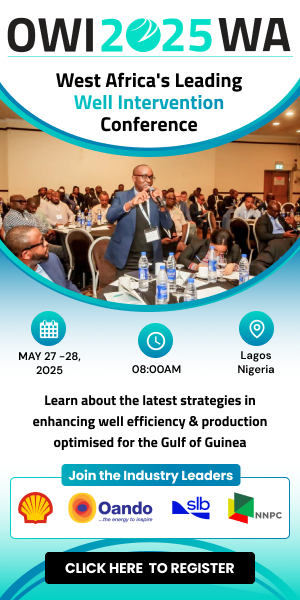
Dragan Krznaric, business director for Middle East and Africa at CASE Construction Equipment at the company's stand at bauma.
Dragan Krznaric, business director for Middle East and Africa at CASE Construction Equipment, spoke to African Review at bauma about business prospects in the region
Krznaric began by emphasising the importance of the Africa and Middle East (AME) region to the group’s operations, accounting for 20-25% of the company’s Europe Middle East Africa business, and offering strong potential for growth.
“We see a divergent trend between the European and AME regions, with growth static in Europe while the AME region is characterised by dynamic growth. We are currently at the historical peak in terms of the total market. Furthermore, in the medium to long term, we see Africa and the Middle East continuing to grow, driven by macro trends, firstly the demographics, which are in turn driving a need for infrastructure development. Then there is the means to finance that, in terms of the region’s natural resources, from hydrocarbons, minerals and metals to agricultural commodities etc.
“Our major markets are Saudi Arabia, UAE and Israel in the Middle East, and South Africa in Africa, which are the main drivers for growth. Elsewhere in the region, there are clusters that show growth, and others that show decline, but it is always changing. Overall the picture is positive, the market is growing, and we try to be flexible; to be present when the opportunity arises and maintain a presence, even when things go down, to show commitment and support to our customers.” He noted that the company has been present in the region for more than 50 years in multiple countries and now has a direct presence in South Africa.
In terms of product lines, Krznaric commented that the market varies from place to place, noting that the heavy range, ie excavators, wheel loaders, graders, bulldozers etc, is growing faster, while the compact line is experiencing steady growth. The split has traditionally been 65/35 in favour of the heavy line, but today it is more like 75/25.
Discussing constraints to growth, Krznaric highlighted the relatively undeveloped financial system, particularly in Africa, so that it often falls to the end user or dealer to provide finance. “Even in the Middle East, where liquidity is not a problem, there is still a higher level of risk averseness towards capital equipment than to other sectors, with construction still seen as a riskier segment than other business areas.”
Infrastructure and logistics are another constraint, particularly in Africa. “The ports, the congestion, the roads, the time and cost it takes to transport things, especially over land, is an issue,” he said.
“And last but not least, skill levels can be a barrier, as higher levels of skills are required for people in the field to maintain and service equipment that is becoming increasingly advanced technologically. While things are improving, there is still a significant skills gap.”
Krznaric stressed the longstanding commitment and partnership the company has with the region and with its dealer partners. “This commitment is illustrated by joint investments and constant training to lift the skills and competence levels of our dealers and their organisations, upgrading tools, processes and systems. It is an ongoing effort to keep up with rising standards as technology develops.”
Forward-looking portfolio
At bauma, emissions reduction, electrification, digitalisation and connectivity were strong themes, and CASE took the opportunity to showcase its most forward-looking portfolio to date, with new electrified machines, remote operations concepts and digital platforms. They included Impact, an electric compact wheel loader that eliminates the traditional cabin and is remotely operated from a dedicated control lounge. It includes an integrated perception system, which uses advanced hardware to collect real-time data, improving efficiency and precision during operation, and is equipped with semi-autonomous functionality, allowing automated digging and dumping operations. Zero-emissions electric compact machines, a compact excavator guided by a GNSS-based machine tracking and position system, and a full-size electric excavator developed with MOOG, a global leader in precision motion technology and electrification, were also amongst the new offerings. A focus of CASE’s presence was the Tech Room, where digital tools and connected solutions designed to transform the way customers interact with their machines were showcased, including myCASEConstruction, a new digital platform and app offering centralised access to fleet data, documentation, service records and dealer communication. Visitors were also able to explore CASE’s machine control and guidance systems through interactive simulators, highlighting how automation and precision technologies improve productivity and operator performance.
To what extent do these themes resonate with the Middle East and Africa? Krznaric highlighted the divergence between the developed world and Africa, noting that electrification is not a trend that has picked up yet.
“The reality in Africa is that fuel quality is a concern. In order to enable customer to have a smooth running operation without major breakdowns and service issues, once has to balance the robustness and the simplicity of components in terms of maintenance, versus the energy efficiency that comes from more advanced technology. Advanced technology by default requires more maintenance, more service etc., so it’s a fine balance. Sometimes people prefer 20-year old mechanical equipment that is easier to fix. We are constantly developing our machines, but also being very wary of not impacting their performance. But that gap is eventually going to close.”
He commented that the younger generation is very tech savvy, although the older generation that runs the business in many places may not be as comfortable or familiar with the technology. “So it will take time.”
Digitalisation developments
Discussing what the company is doing in the digitalisation space in the region, he said it is investing significantly in telematics and opened a new control room in South Africa two years ago, with all units in the country equipped with telematics visible from that control room, which can monitor and manage equipment. The next step will be to roll this out across the whole of Africa.
“Right now, the challenge is to make use of all this data, which brings us back to the question of investing in our partners, because the true value of the data will lie in the dealer being able to provide a better service to the customers. This is what we are focusing on at the moment, developing the tools and building the capacities for dealers to make service plans based on the data that is becoming available.”
Connectivity is a challenge however, particularly in remote areas. “We do have tools where we have a satellite link, but this is still work in progress. The mining sector is more developed in this respect and more technology driven than the construction sector. So you might find a mine using an automated fleet of haulers, next to a construction site with an operator seated in a mechanical machine.”
Concluding, Krznaric reiterated his excitement about the region’s potential, and the importance of developing business with its dealer partners, which lie at the heart of the company’s business model. He added that CNH has established a direct presence in South Africa, which is providing valuable exposure to the end user customer.
“The experience and learning from that is helping us to improve our understanding and shape our offering, that can help us in other places.”






















